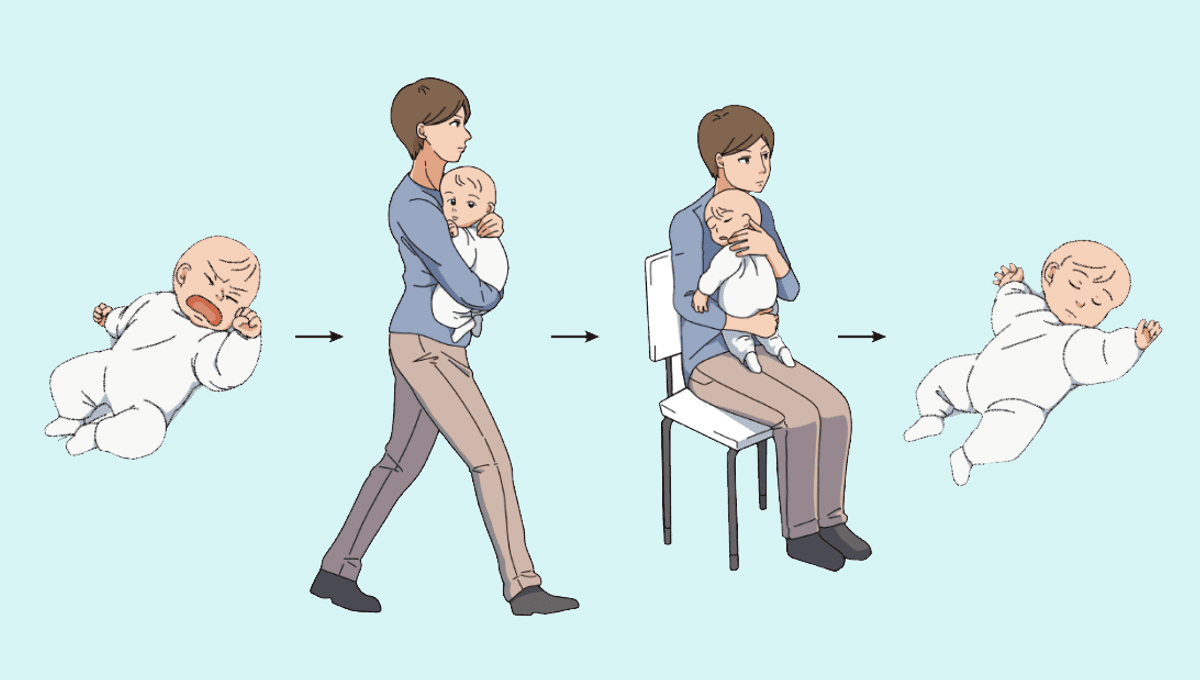
If you’re a new parent who has found themselves pleading “how do I get my baby to stop crying?!” in the dark hours of the morning (or at any time, for that matter) you’ll be pleased to know that scientists believe they have found a recipe for respite. Their “method to soothe and promote sleep in crying infants” utilizes a little trick called the “transport response”, and you can try it at home.
The research hacks the way in which walking while holding animals can calm them down, and it’s not unique to Homo sapiens infants. The technique for how to stop a baby crying takes just a few minutes and is reportedly effective during the daytime as well as at night.
How to get a baby to stop crying
According to the research, published in Current Biology, the best way to get a baby to stop crying is as simple as Walk, Sit, Sleep. They suggest walking for five minutes while carrying the crying infant, before sitting down to hold them for five to eight minutes before laying them down to sleep.
The Walk, Sit, Sleep approach benefits from something called the Transport Response, which is seen in many altricial mammals. That is, animals whose young are born unable to support themselves and so are often carried around and cared for.
The transport response is seen as they are being carried, during which time the young’s heart rate can slow and they become more docile. Sounds pretty good, right? But would it work in humans?
The Transport Response as a way of stopping crying
The study took 21 infants and compared the way they responded to four conditions: being held by their mother who was walking, being held by their mother while they were sitting, laying in a rocking crib, or in a still one. The observations revealed a calming effect for infants being held while walking and those in rocking cribs, which in the walking condition saw their heart rate slow within 30 seconds.
It seems the movement involved in both conditions appeared to mirror the Transport Response, but only when the infants were distressed.
“Walking for five minutes promoted sleep, but only for crying infants,” explained lead researcher Kumi Kuroda at the RIKEN Center for Brain Science (CBS) in Japan in a statement. “Surprisingly, this effect was absent when babies were already calm beforehand.”
Does the Transport Response work even if you’re not the baby’s mother?
While the research centered around the effects of infants being carried and held by mothers, Kuroda expects the effect would carry to any caregiver and knows a thing or two about what that’s like.
“Even as a mother of four, I was very surprised to see the result,” Kuroda said in another statement. “I thought baby awoke during a laydown is related to how they’re put on the bed, such as their posture, or the gentleness of the movement, but our experiment did not support these general assumptions.”
Why do babies cry so much?
Excessive crying is thought to affect around 20 to 30 percent of infants (they even cry in the womb), so if you’re struggling with a bawling little one, you are not alone and there’s a reason why it’s so hard to ignore. However, those realizations will likely do little to comfort crying infants or their parents, which is why Kuroda and colleagues were eager to investigate the Transport Response.
“Many parents suffer from babies’ nighttime crying,” explained Kuroda. “That’s such a big issue, especially for inexperienced parents, that can lead to parental stress and even to infant maltreatment in a small number of cases.”
“For many, we intuitively parent and listen to other people’s advice on parenting without testing the methods with rigorous science. But we need science to understand a baby’s behaviors, because they’re much more complex and diverse than we thought.”
So, if you’re struggling with a crying baby remember: Walk for five minutes, sit for five to eight, and then lay down to sleep.
Source Link: How To Get A Baby To Stop Crying, According To Science